Immigration





As immigration reform gains more and more bipartisan support in Congress, I am encouraged by our lawmakers’ positive steps forward, and I can’t help but think of my own story on immigration.
When I first started working on immigration, I was naïve. My wife and I started ministering to immigrants in 2005, and I thought our work would be all about sharing the Gospel of Christ.
I thought we would share in word and deed and our acts of service would show compassion. I was sure moving to the neighborhood would help make us equal participants in our community together, but certain things would make this nearly impossible.


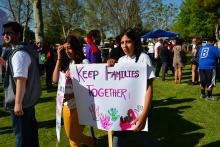
"All persons are caught in an inescapable network of mutuality, tied in a single garment of destiny. Whatever affects one directly affects all indirectly. I can never be what I ought to be until you are what you ought to be, and you can never be what you ought to be until I am what I ought to be.” - Martin Luther King, Jr.
When my husband Billy and I married, he was a supervisor for underground drilling construction crews. It was hard work, but he enjoyed the fast pace and his team. Most of the workers, including Billy, were undocumented immigrants, working illegally in the U.S.
I was nervous. My new husband was driving giant construction equipment all over Southern California without a valid driver’s license. I knew one mistake could result in deportation and our sharing life together in Guatemala.
I expected exploitation and injustice. So while I was angry when situations arose, like not getting paid for a month’s worth of work, I can’t honestly say I was surprised. What did stun me, however, was a bizarre experience with Billy’s boss.
Billy had worked for James for a little over a year when a series of broken promises encouraged Billy to look elsewhere for a job. He found a company familiar with his work and willing to make him an offer. He politely turned in his two week’s notice.
James was not happy. In fact, he told Billy not to bother working the final two weeks. Then he did the unthinkable: he called and reported Billy’s immigration status to the authorities.

For Nazry and I, our faith is paramount to how we think about immigration policy. The heaviest tears that we cried during his 10 months of detention were for the men and women in the detention centers who were scared and confused, without a network of support to sustain them like my husband had.
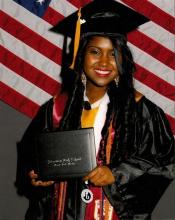
My name is Tabitha Sookdeo, and I’m 20 years old. I was born in a third world country called Guyana. When I was 13 days old, I immigrated to Saint Maarten — a beautiful island in the Dutch Caribbean. From here appeared a foreshadowing of struggles. My father lived on the island for more than 20 years, and they never issued him an opportunity to get his citizenship, much less a status of permanent residency. However, he legally owned a construction business and paid taxes. When I turned 13 years old, the government refused to renew my stay. I attended school from kindergarten to 8th grade. I spoke their language of instruction, and I was recognized by the government as a top student. My family even helped to run a local ministry.
To move back to Guyana would be regression. Our lawyer recommended that we come to the U.S. so that my sister and I could go to school, because I was not allowed to attend high school on the island due to my legal status.

I first heard about Ruth Carmina Alvarez from my friend Kit Danley. Kit is the director of Neighborhood Ministries, a Christian community in downtown Phoenix that, over the past several years, has become increasingly focused on advocacy for undocumented immigrants in their neighborhood. It’s through Kit and her son Ian that I have become involved in discussions between evangelical pastors and many of our elected officials as we all seek a just, humane repair of our tragically broken immigration laws.
Carmina, a longtime Phoenix resident who is married to a citizen and has a citizen child, used a friend’s ID to get a job at a local KFC. She was picked up on immigration-related charges last August for working with “bad documents” but was released and had no subsequent contact with authorities. But on April 1 police came to her house and arrested her. She had just finished eight months of chemotherapy for Stage 3 breast cancer and was still very sick, waiting for surgery to remove the tumor. Carmina was charged with a class 4 felony, which could mean deportation. But more importantly, if she pleaded guilty, she would have been ineligible for any status adjustment should a comprehensive immigration reform bill pass.
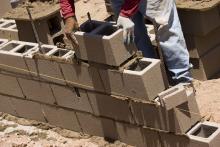
I became interested in the politics of immigration in about the most innocent way possible for a student at a conservative Christian college — good ol’ fashioned evangelism. Working on an “impact team” with a local Columbian pastor, we had a few nights of evangelism in large apartment complex that was almost exclusively Honduran. On the first night, I struck up a conversation with a (very) drunk man sitting on a park bench named Carlos. Over the next few months our relationship grew, and we became close friends. Eventually, he had an experience with Christ that changed his life and we came brothers. As members of the same body, this now meant that his burdens were my burdens (Rom 12:15; Gal. 6:2). As Carlos was an undocumented immigrant living in the south, this means that it sure didn’t take long for my burden to become immigration reform
Months after our initial meeting, I looked down at my phone and saw that Carlos was calling—but as I picked it up, the voice on the other line didn’t sound anything like my friend. Instead of a loud and happy voice calling me gringo, the voice was strained, quiet, emotional. I tensed up at the sound of his quivering voice — recognizing immediately that something serious was wrong.
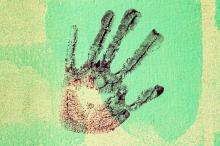
Some of you may know the experience of having a secret about yourself that when revealed makes you have to completely reframe your identity. This happened for me in my junior year of high school when I was offered the opportunity to travel through a college bound program. That is when I learned I was “undocumented.” The reality of the broad impact of this label set in with each evasive answer my mother gave when I asked if I’d be able to not only travel, but drive, or work to help pay the bills. Being undocumented threatened my dreams of going to college; it threatened the possibility of a better future.
I was born in Mexico, and as proud as I am about my ethnicity, there is only one place I know as home, the United States. My father abandoned us when I was 3 years old and this set everything in motion that would lead me and my family to the U.S. When we struggled without his support, my older brother left for the U.S. in search of a better life at the age of 14. My mother’s love for her oldest son drove her to leave her home as well. When my brother learned she was considering leaving me, his young sister, in the care of my uncle while she visited him, he insisted she brought me along. I have now been in the U.S. for 25 years.
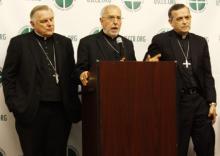
Catholic bishops returned to Capitol Hill on Thursday with a renewed push for immigration reform, as Miami Archbishop Thomas Wenski called the failure to address immigration reform “a stain on the soul of our nation.”
Before fanning out to meet with lawmakers, members of the U.S. Conference of Catholic Bishops’ Committee on Migration held a Mass at a Capitol Hill church that recalled a dramatic Mass they held April 1 along the U.S.-Mexican border.
Wenski, the committee’s chairman, said, “When laws fail to advance the common good, they can and they should be changed.”
The bishops’ push was accompanied by a separate open letter to House Speaker John Boehner, a Catholic, signed by 30 Catholic leaders, including the Rev. Larry Snyder, CEO of Catholic Charities USA, and the Rev. Thomas H. Smolich, who oversees Jesuit priests in the U.S.
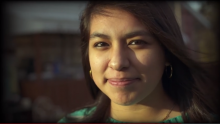
The people we meet change our lives. Through hearing the stories and learning about the lives of others, we are transformed. And, it is for exactly those reasons that I hope you’ll watch this short trailer and sign up to be one of the first people to watch The Stranger.
The Stranger is a new 40-minute documentary created to introduce Christians to the stories and lives of immigrants living in this country. Interviews with pastors, Christian leaders, and policy experts provide a biblically based context for the immigration challenges that face our country today. The film, commissioned by the Evangelical Immigration Table, was produced by Emmy-award winning producer Linda Midgett.




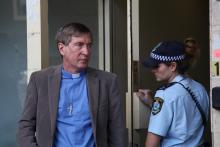
On Monday a nun was arrested here in Australia. That’s right, a nun. She was one of a crowd of Christian leaders who engaged in nonviolent sit-ins at the electorate offices of Bill Shorten and Tony Abbott. This is the latest #LoveMakesAWay action protesting indefinite imprisonment of children in our immigration detention centers. When nuns are cranky at this bipartisan brutality, its fair to say something is gravely wrong.
It was a candid moment with the BBC. Malcolm Turnbull let slip what a lot of decent Australians are thinking, not just placard-waving radicals with witty twitter handles, but families with mortgages who ferry their kids to weekend sport. ‘I don't think any of us are entirely comfortable with any policies relating to border protection’ he said. Malcolm is a team player, so he’s never going to come right out and say it. But nuns will. Desperate people are coming to us seeking safety from persecution, and the way we treat them is wrong.